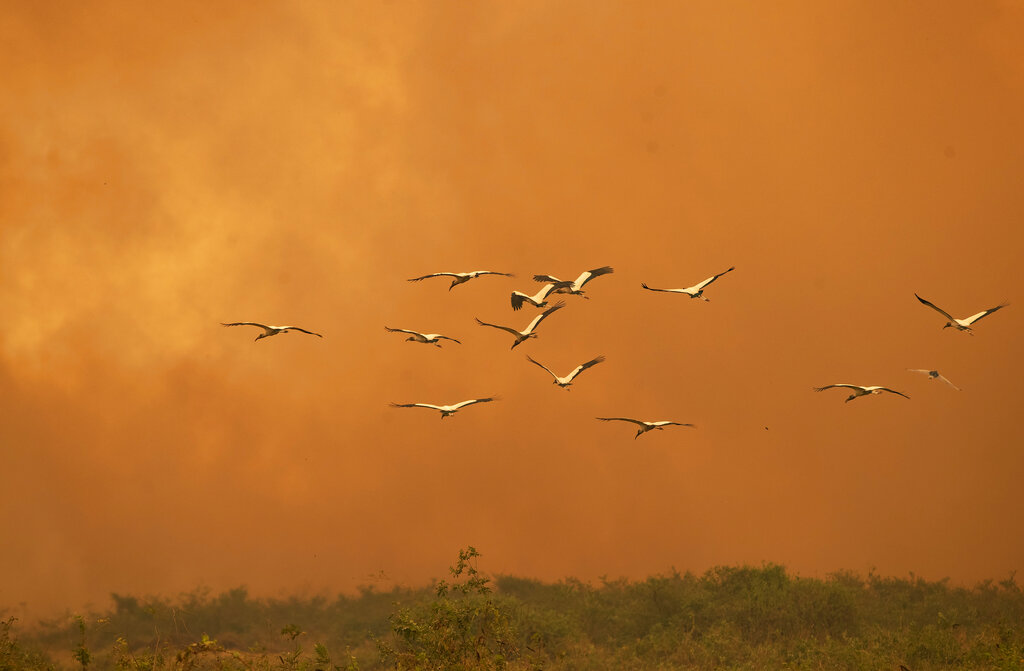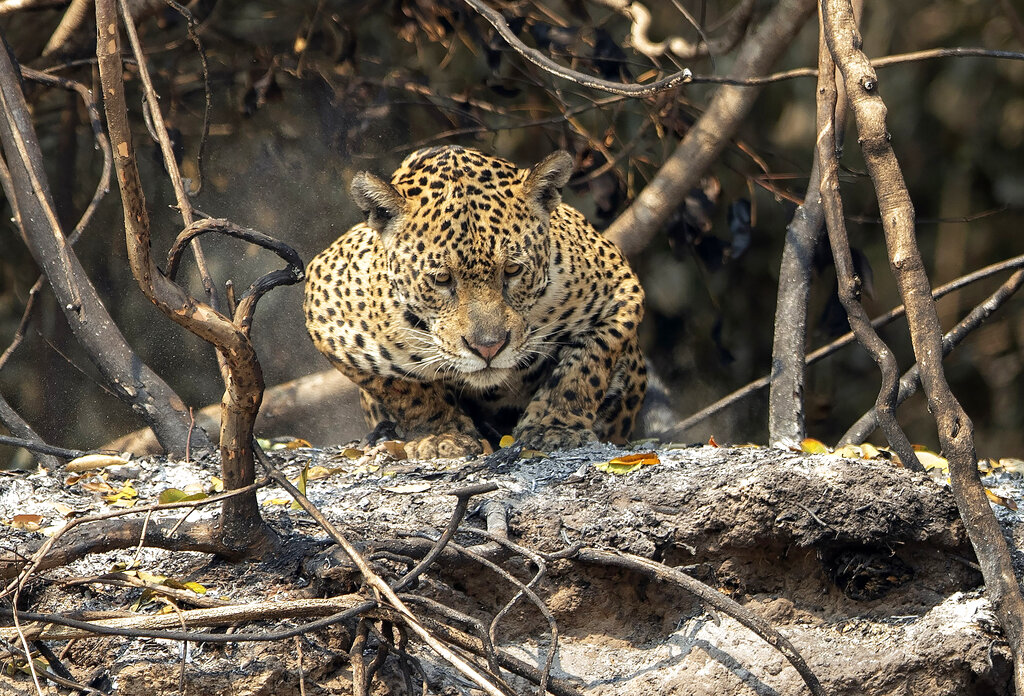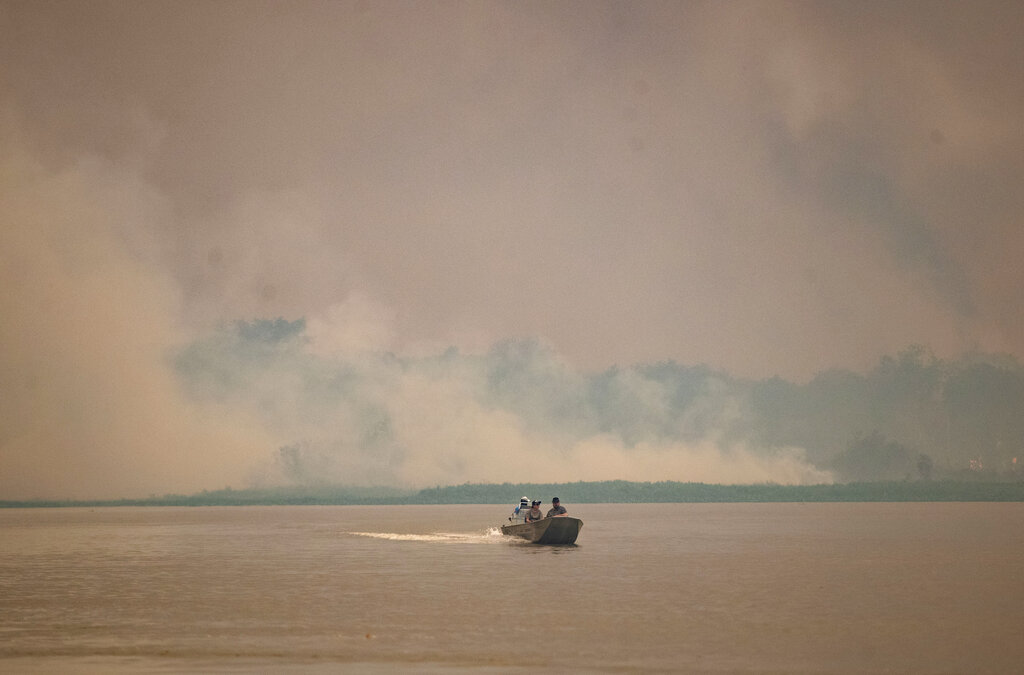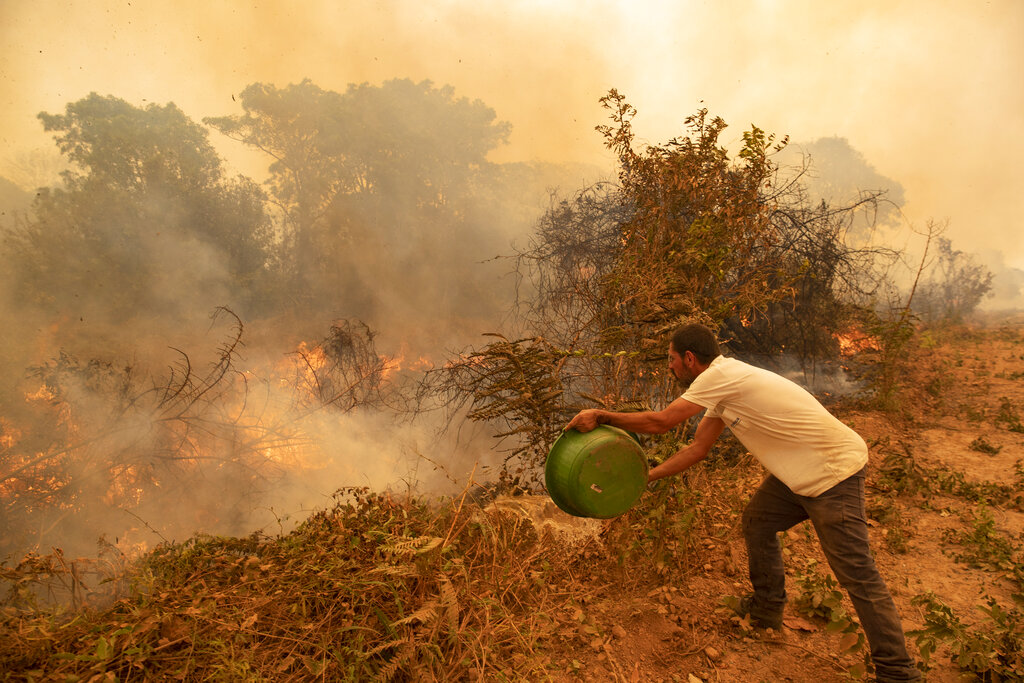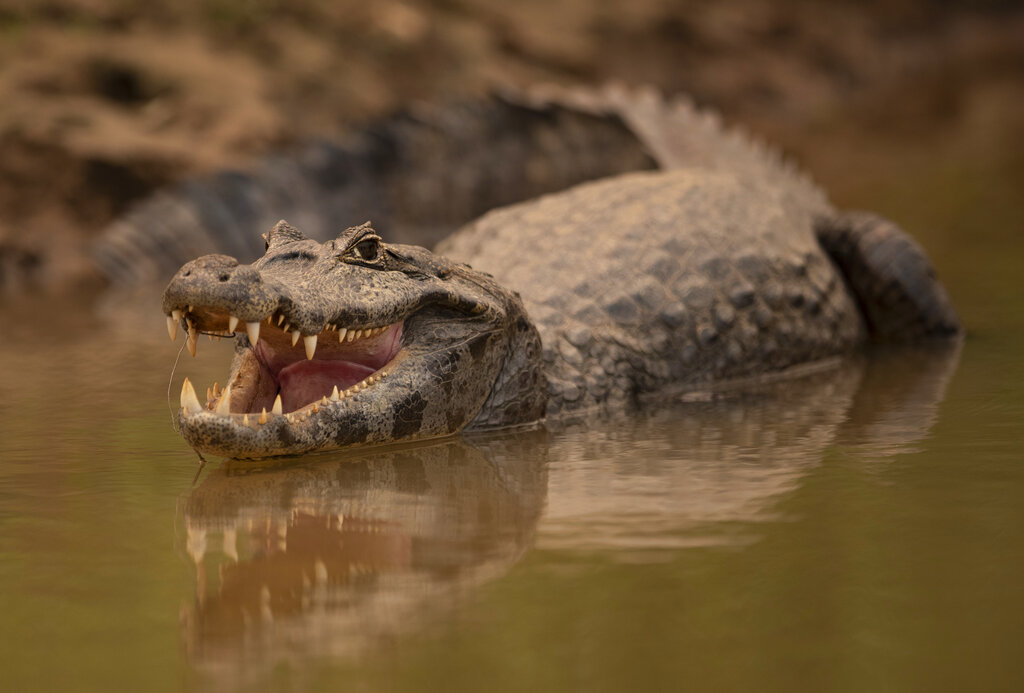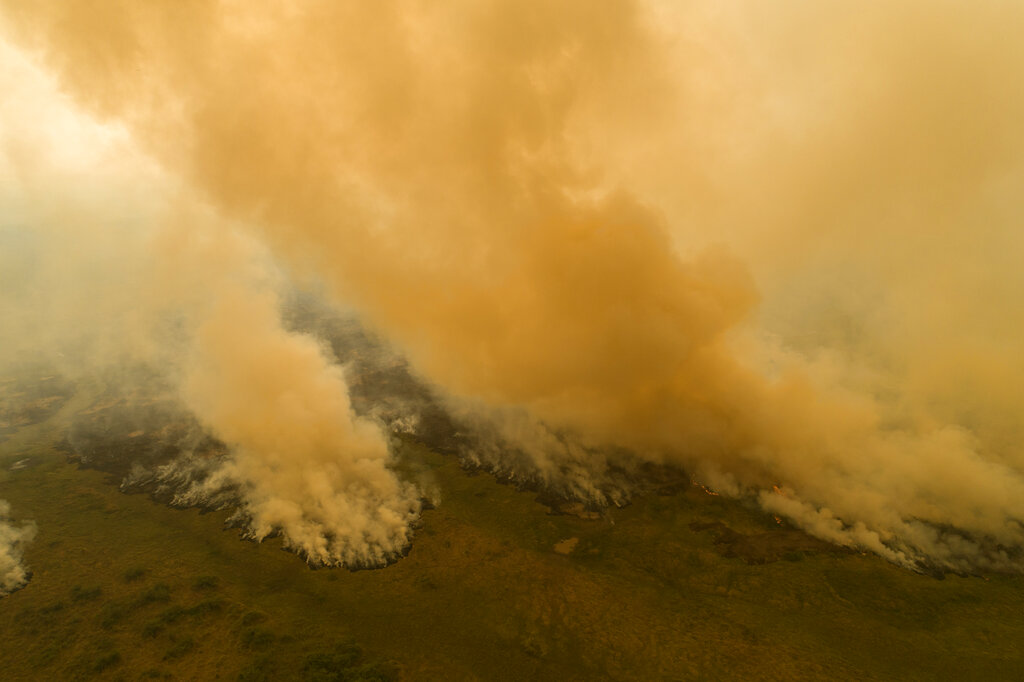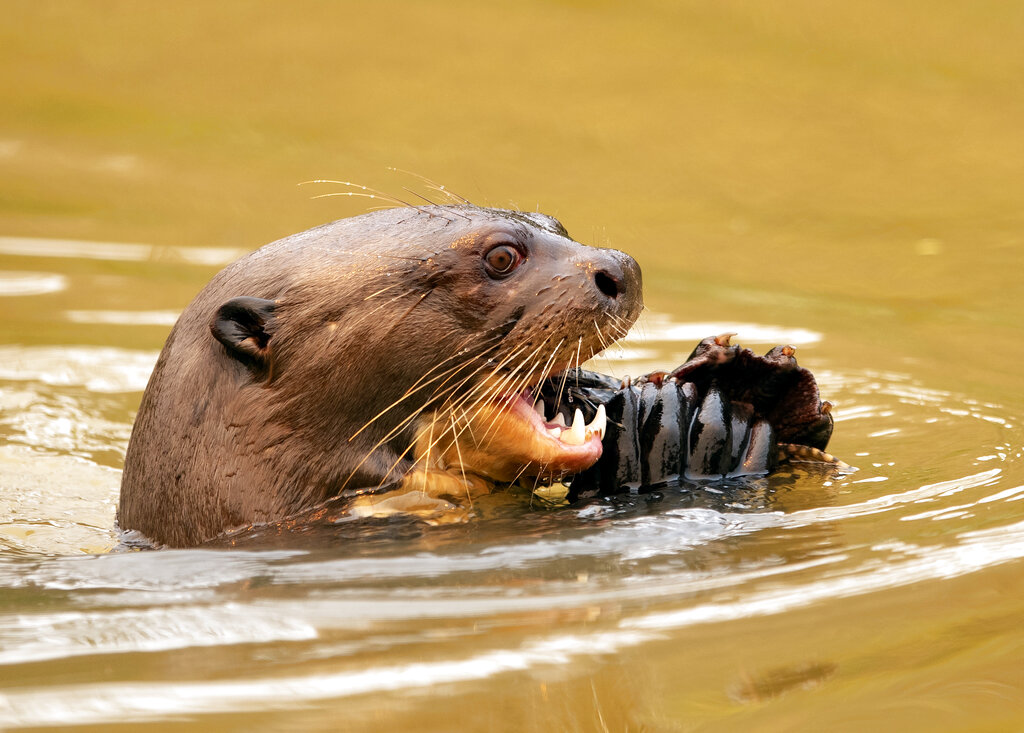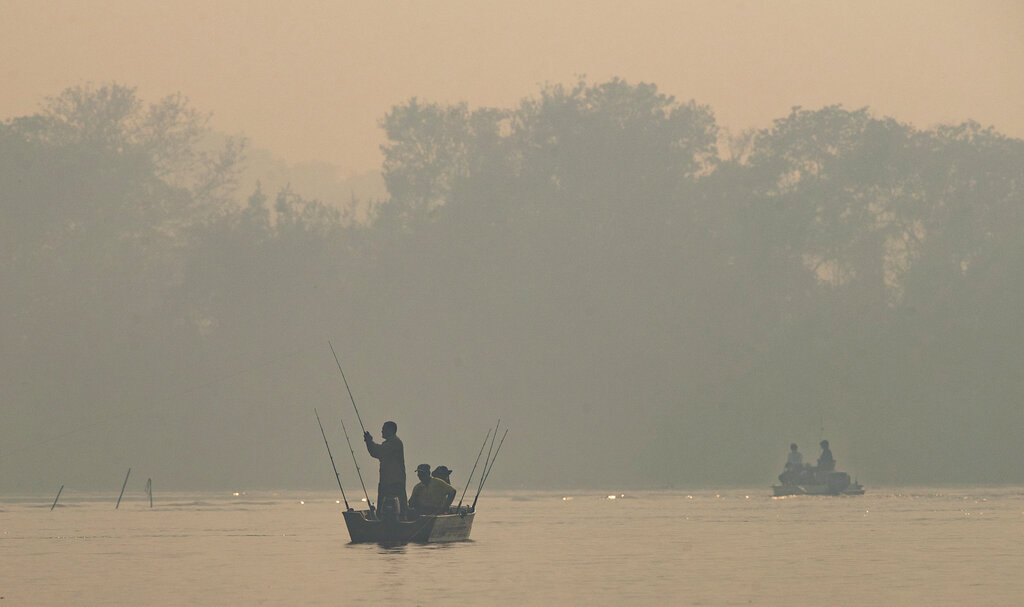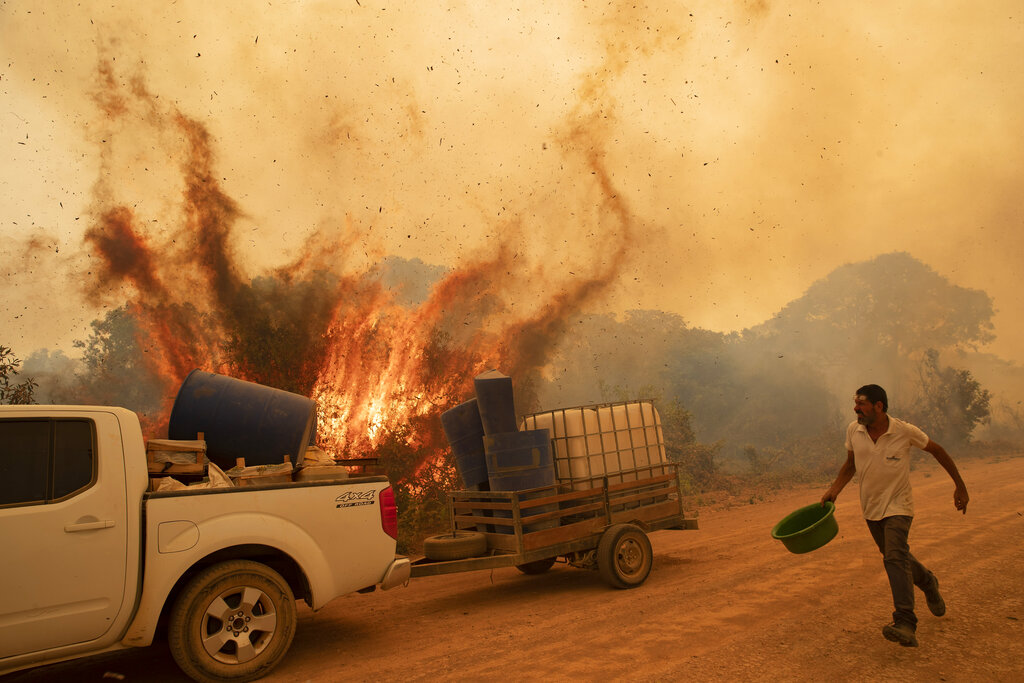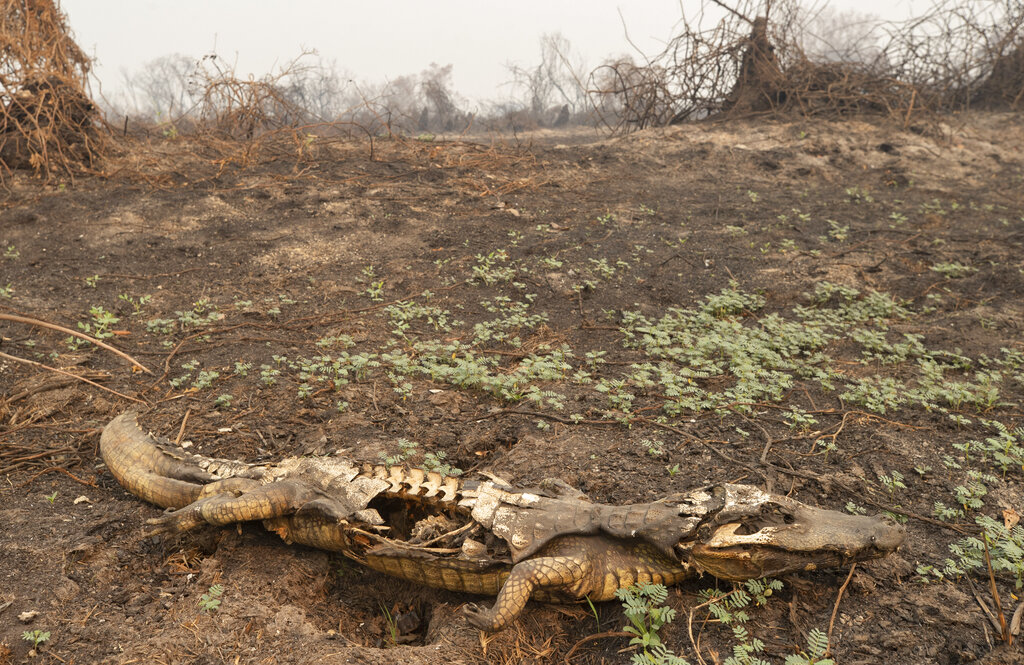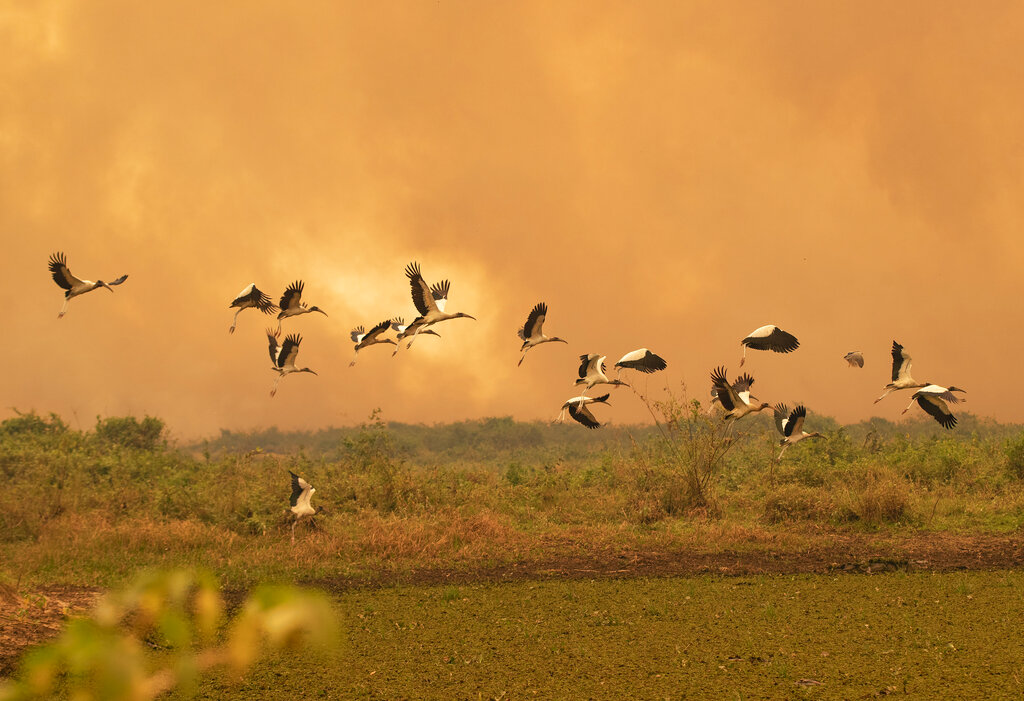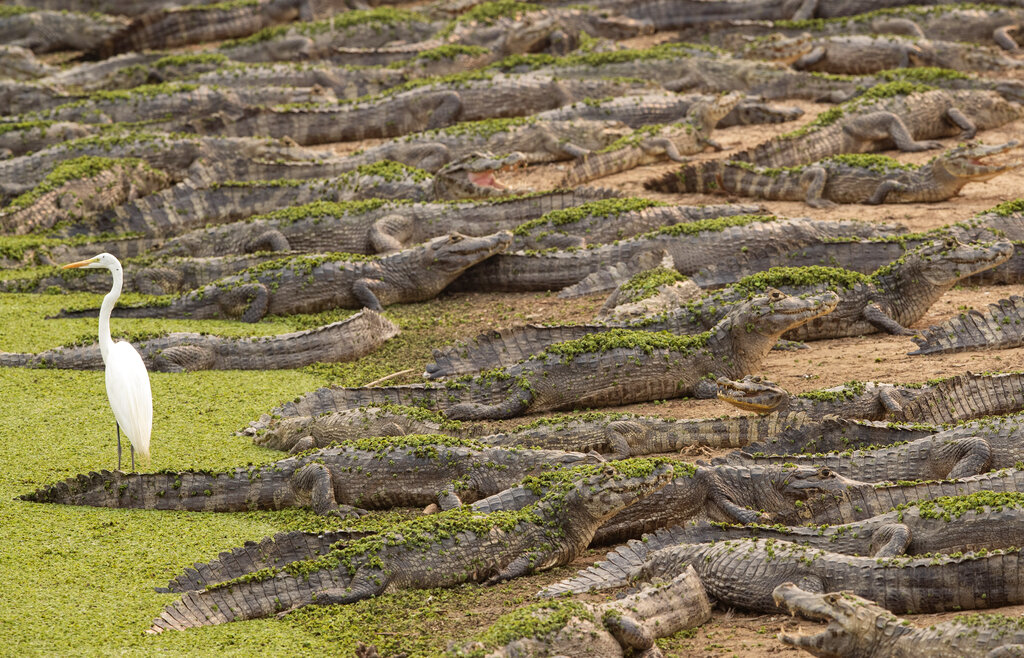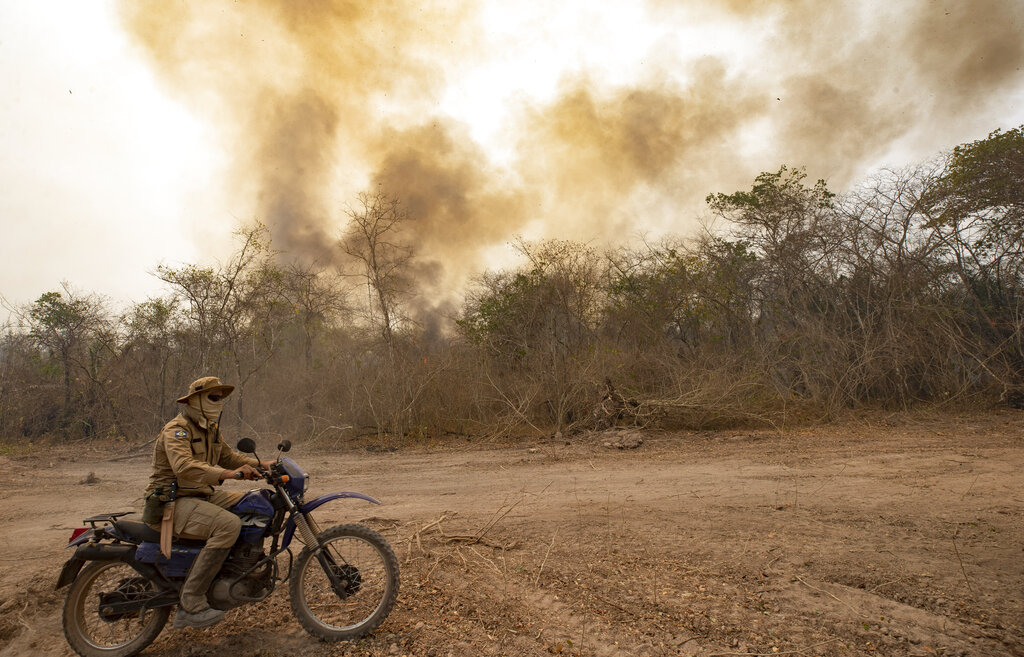Anche il Brasile brucia
Uccelli, alligatori, giaguari e altri animali sono in fuga dal fuoco che sta devastando vaste zone del Pantanal brasiliano (stato del Mato Grosso). È una delle più grandi zone umide tropicali del mondo. Il numero di incendi nella prima metà del 2020 è più che raddoppiato rispetto allo stesso periodo dello scorso anno, secondo i dati diffusi da un istituto statale. Diversi parchi nazionali sono nei guai, col sole oscurato dal fumo denso. (AP Photo/Andre Penner)
